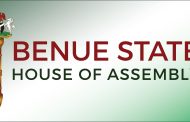For someone who had said that Africa was “in search of a new historical mode of politics” but who subsequently ended up as a guerrilla fighter, Prof Ernest Wamba Dia Wamba’s death now cannot but leave Africa with more questions to ponder. Prof Wamba Dia Wamba was an unusual African intellectual, a complicated one for that matter, being one of the few who served the continent a brew of pure ideas, (if there is ever anything like that), the guerrilla strategy and politics in the conventional sense of it as negotiated accommodation. He was thus not typical.

Map of Africa showing DRC which remains Africa’s longest history of uninterrupted human tragedy since 1965
For a long time to come, he would be a reference point for both those who agree as well as those who disagree with him on the strategy of violence. Yes, Fanon, the grand philosopher of violence as therapy for colonialism endorsed a strategy of violence. His argument which is back in the literature because of recent global activism against inequality is that only violence can repudiate the contradictions that colonial violence created. In other words, Fanon was not about violence in just every circumstance where extreme savagery and associated mental violence had not been the case.
So, when Wamba Dia Wamba entered the bush to resolve the crisis in the DRC, he raised the stakes. But the questions that came with that are only questions to the extent that DRC was not direct colonialism but a dimension of the crisis of the post colonial state. The questions his adoption of guerrilla strategy raised are thus only for contemplation, not one which can be answered as good or bad. Not in the context of the complexity that the post Cold War has brought to the national question across Africa, the degree of violence that occurred and the response of the typical post colonial state in most cases which were as evil as direct colonialism. Even the most advanced philosopher could find him or herself with a difficult, choiceless option in such situations.
The point though is what critics are calling his one big mistake. It is what has been seen as a strategy of trying to ride on General Paul Kagame’s power to power in the DRC. The error, according to this view, is that he, (Dia Wamba) thought he was in charge without realising he was clearly an agent of a powerful leader external to the DRC and whose designs were just not the same as Wamba’s own objectives. And in that may lie the potentials and limits of Wamba’s exertions.
All these should be important issues for reflection regarding the role of intellectuals in (African) politics. What is the value to be added to what Fanon, Cabral, Machel, Mugabe, Nkrumah, Amir, Mandela, Winnie, Taju, Momoh and several others have had to say in the space and time they did so and the space and time that the living are confronting. What have changed and what are still the same and where do the answers lie?
Lastly, is it possible that a certain creative or artistic spirit took Wamba to the route he took? The theory is that most artistic minds are prone to extremes of extremes of violence as well as of creativity. Literary activist, Obi Nwakanma has argued this in the case of Nigeria’s Christopher Okigbo who did basically what Wamba did in the Congo – taking to violence. Okigbo had the rating of a literary genius. The unimpeachable information is that Wamba was not just a fine scholar and gentleman but also a great dancer.




























